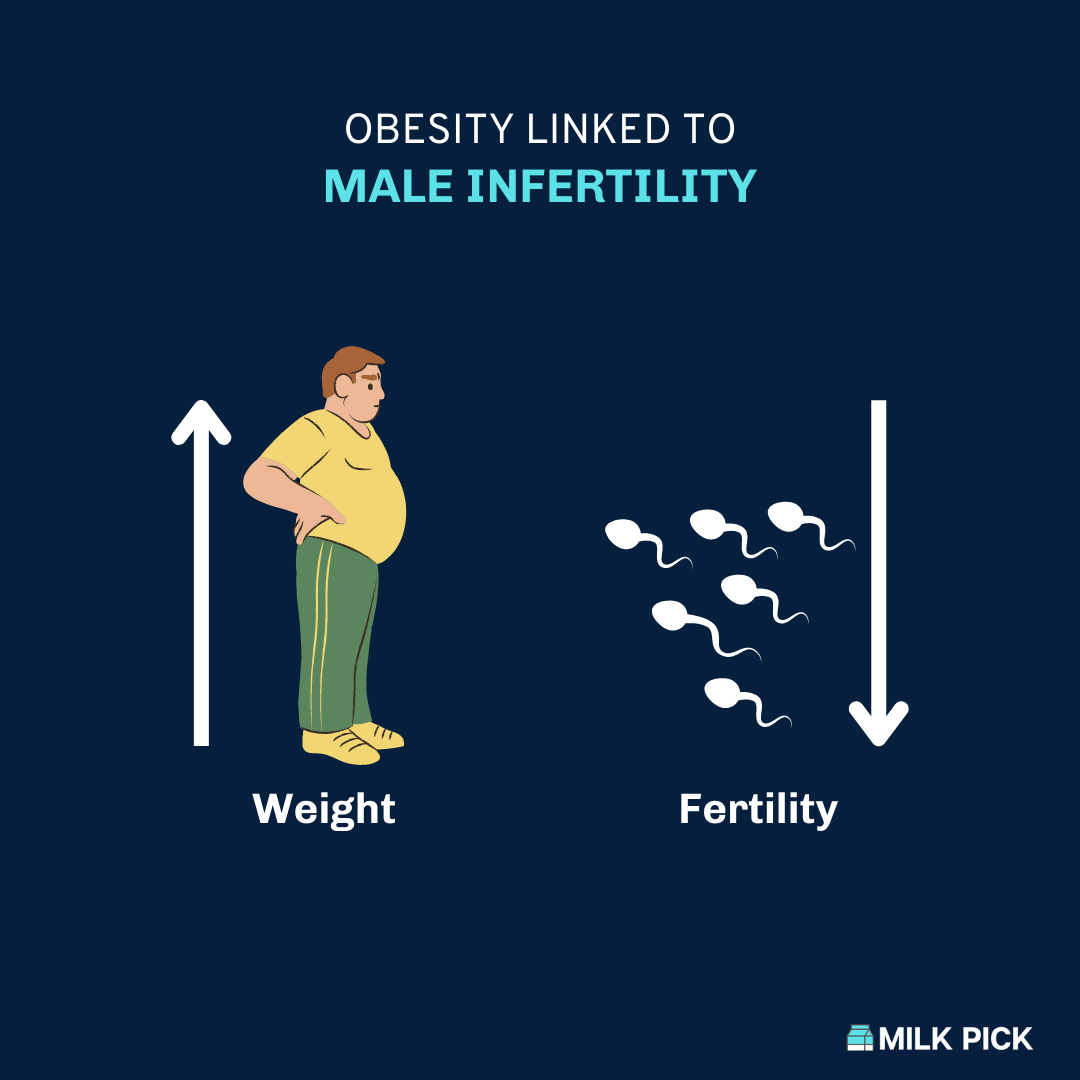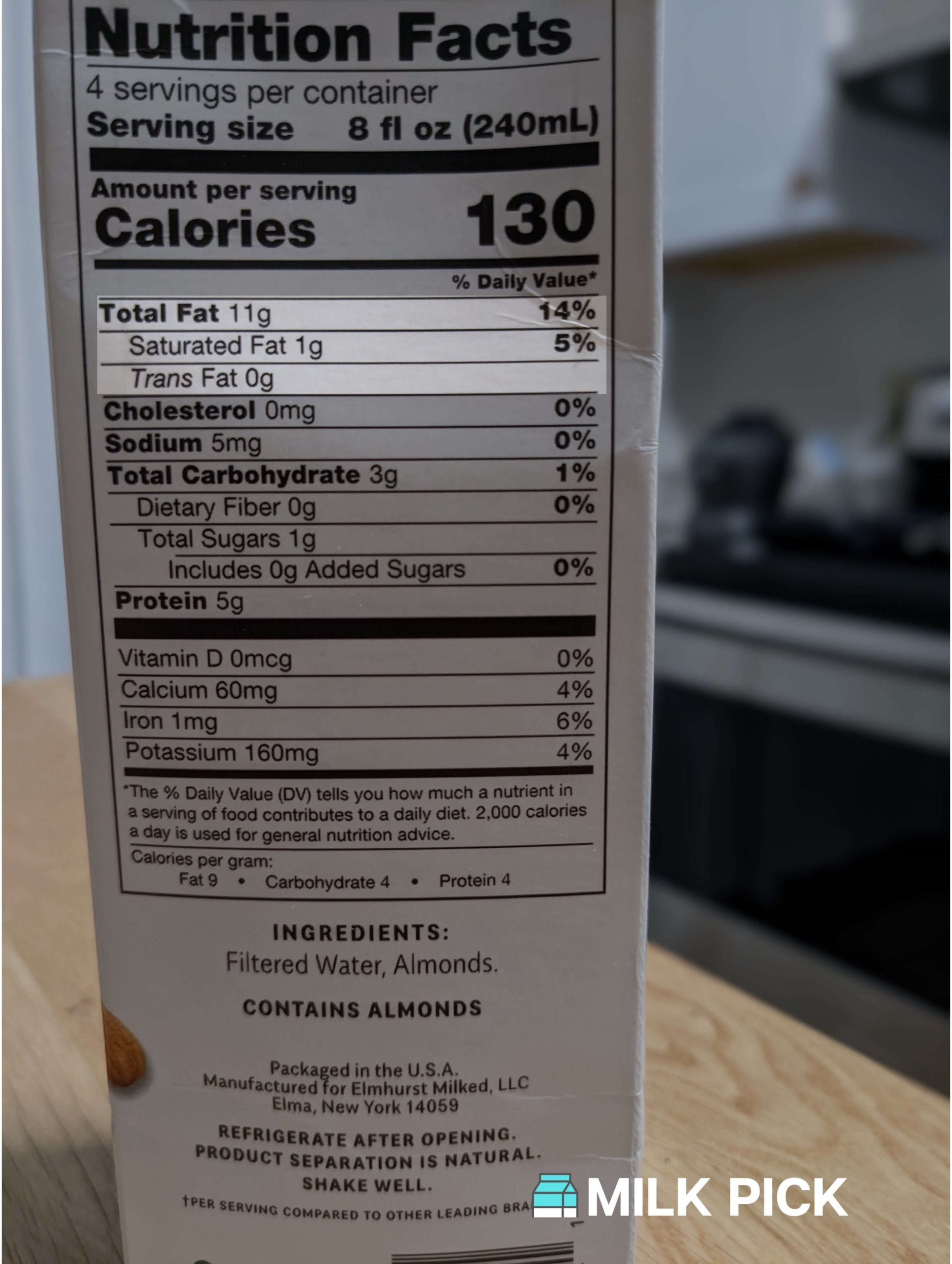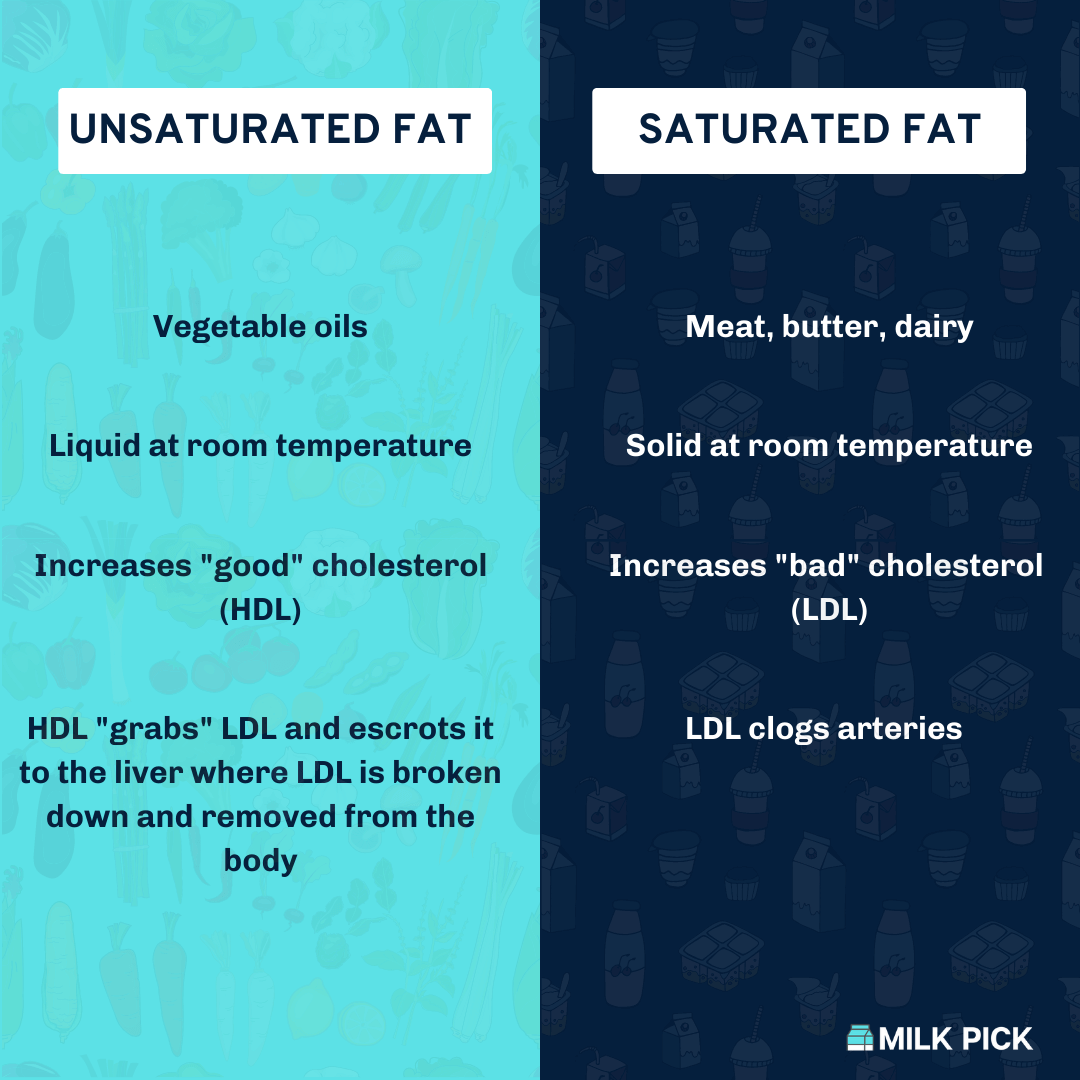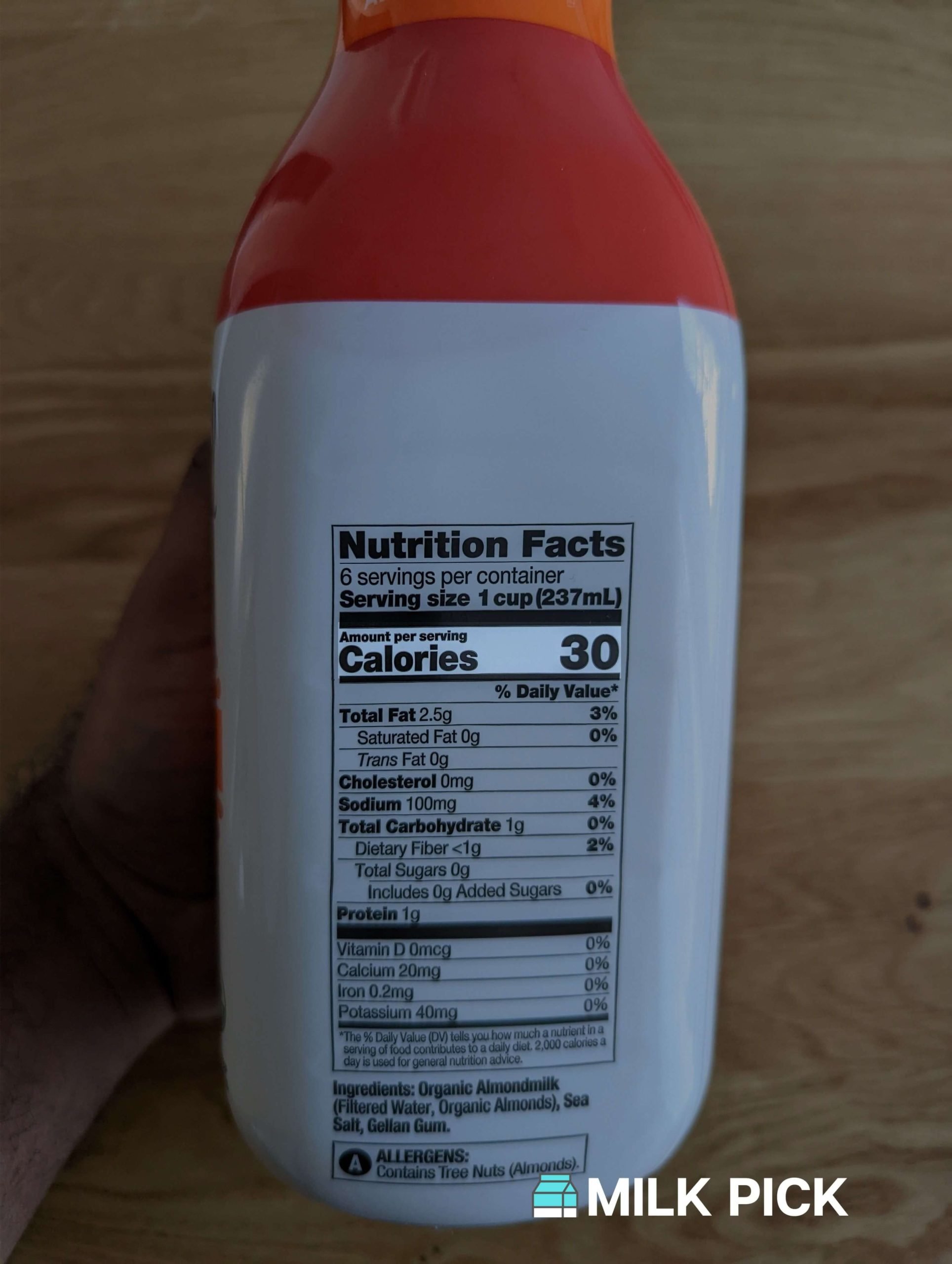Many factors influence male fertility. Your diet is one of the factors you can easily manipulate to improve your sperm health. If you’re an almond milk drinker, you’re probably wondering if almond milk is good for your sperm.
Almond milk is good for sperm health because it lacks saturated fat, is rich in the antioxidant vitamin E, and helps males maintain a healthy weight.
This article will teach you everything you need to know about how almond milk impacts your sperm and fertility as a male. By the end, you can make dietary choices that are best suited for your health in relation to your fertility.
The Quick Answer
Is almond milk good for sperm?
Yes, almond milk is high in vitamin E, which has been shown to improve sperm motility. Almond milk's low calorie count also makes it easier to maintain a healthy weight, which may improve sperm production and health.
How Does Almond Milk Improve Sperm Health?
Almond milk helps improve sperm quality and motility to promote enhanced male fertility through several different mechanisms.
One of the ways almond milk improves sperm quality is by reducing your overall dietary fat. Research shows that low fat diets are associated with improved sperm quality and erectile function.
Almond milk is also rich in an antioxidant called vitamin E .
Vitamin E has been associated with improving sperm motility and protects the sperm from external damage caused by free radicals.
The last mechanism by which almond milk helps improve sperm health is through helping you maintain a healthy weight.
This is important because obesity has been linked to significant reductions in male fertility.
Given that almond milk is a low-calorie milk option without saturated fats that is high in key nutrients for sperm health, it may be a good option for males concerned with their fertility.

Factors to Consider in Relation to Male Fertility
While male fertility is a complex matter, two main factors to keep in mind are the quality of the sperm and how well the sperm move.
If the quality of the sperm is poor, the sperm may be less likely to result in a healthy pregnancy.
Studies have found that poor quality sperm are related to increased difficulty with getting pregnant and a higher miscarriage rate.
In addition to sperm quality, you have to take into account sperm motility. This is a fancy way of saying how well the sperm swim or move.
Research shows that sperm motility plays a key role in increasing your odds for pregnancy with your partner.
Here's a video from Medicover Fertility with more insights on what causes low sperm motility and how to improve it.
So if you want to promote your overall male fertility, you will want to focus on things within your control that can improve both the quality and motility of your sperm.
Does Diet Really Matter When It Comes to Male Fertility?
You might be inclined to think that your diet probably has little to no impact on your fertility as a male.
But the research indicates this couldn’t be further from the truth.
Studies show that adhering to a healthy diet plays a significant role in the concentration and motility of your sperm.
The research shows that you may want to emphasize the following factors when it comes to improving your diet for male fertility:
- Increased intake of fruits and vegetables
- Adequate intake of nuts
- Whole grains over processed grains
- Omega-rich seafood sources
- Low Fat Poultry
- Minimizing saturated fats
- Antioxidant supplementation
Now let’s dive into how almond milk in particular relates to helping you make some of these dietary choices to emphasize your fertility as a male.
Saturated Fat and Sperm Health
One of the things that is in your control when it comes to male fertility is your dietary choices.
And when it comes to your diet, you may want to take a closer look at how much fat is in your diet.
Research has shown that diets high in saturated fats are associated with both a reduced sperm count and quality. Foods high in saturated fats include things like milk, fatty meats, and butter.
If you are a regular consumer of dairy milk, this could be contributing to higher levels of dietary saturated fat. An eight-ounce glass of 2% dairy milk contains about 4.9 grams of primarily saturated fat.
Dietary guidelines recommend that no more than 10% of your total daily calories come from saturated fats. If you are drinking, baking, or cooking with dairy milk regularly, this could add up quickly and has the potential to negatively influence your fertility as a male.
An eight-ounce glass of almond milk has very little saturated fats.

It does have 2 to 4 grams of polyunsaturated or monounsaturated fats. But these types of fats are healthy for you compared to saturated fats.
Polyunsaturated Fats in Almond Milk and Sperm Health
We just discussed how almond milk does have some polyunsaturated and monounsaturated fats in it. So you might be confused because we were talking about how a low fat diet is helpful for improving sperm health.
Let’s clear things up a bit.
Polyunsaturated fats are not the same as saturated fats. The difference primarily lies in their chemical makeup, but that slight difference plays a big role in your health.

Research demonstrates that polyunsaturated fats are associated with improved sperm quality, sperm motility, and enhance sperm metabolism.
These are all good things when it comes to improving your fertility as a male.
This is why switching to almond milk is a simple way to reduce your consumption of saturated fats while upping your intake of polyunsaturated fats in your diet to support your male fertility.
Antioxidants and Sperm Health
Now that we understand how the different fats in various types of milk influence male fertility, let’s chat about antioxidants.
You’ve probably heard the word antioxidant thrown around in commercials or on food labels.
But what are they and why do we care about them in relation to sperm health?
Antioxidants are substances that help to neutralize free radicals.
Free radicals are considered atoms that have gone haywire and can cause damage in the body resulting in disease.
Research shows that men struggling with infertility may have higher levels of free radicals. These free radicals could be damaging the sperm.
And the same research indicates that supplementing with antioxidants through diet may be helpful for improving their overall fertility.
So you want to seek out dietary foods and beverages rich in antioxidants as a male looking to enhance his fertility.
Vitamin E in Almond Milk and Sperm Health
Almond milk just so happens to be particularly rich in one antioxidant that plays a key role in male fertility. This antioxidant is vitamin E.
Vitamin E has been shown to protect the sperm’s outer membrane from damage caused by free radicals. And it also helps to improve sperm motility to increase the odds of pregnancy.
One eight ounce glass of almond milk has up to 50% of your daily value of vitamin E. This means with just a few cups you could easily assure you’re getting enough vitamin E in your diet.
This ends up being a much more cost-efficient method for achieving your daily intake of vitamin E when compared to buying over the counter antioxidant supplements.
It’s easy to get in multiple glasses of almond milk each day by using it in a smoothie, oatmeal, cereal or to cook with to make sure you meet your daily value.
Related: Is Almond Milk Good For Men?
Obesity and Sperm Health
Beyond just the contents of the almond milk itself, the overall low caloric density may help to enhance your male fertility.
The reason you may want to focus on lower calorie milk options is researchers believe that the rise in obesity is contributing to fertility issues in both males and females.
Studies have linked obesity with reduced sperm quality and a dysfunctional testosterone metabolism. Both of these factors will negatively impact your male fertility.
Almond milk may help when it comes to weight management as it is a lower calorie milk option.
Depending on the brand, an eight ounce glass of unsweetened almond milk may contain as little as 30-40 calories.


The same eight ounce glass of 2% fat dairy milk contains about 103 calories.
With almond milk being under half the amount of calories compared to dairy milk, it may be an easy way to reduce your overall caloric intake.
Yes, Almond Milk Is Good For Sperm Health
Almond milk is a good milk option for helping to promote improved sperm health and male fertility.
Almond milk lacks saturated fats which have been associated with negative effects on male fertility. Instead, almond milk contains healthy polyunsaturated fats to help optimize sperm quality and motility.
Almond milk is high in an antioxidant called vitamin E which will help to protect the sperm from outside damage. Vitamin E also helps to improve the overall sperm mobility increasing odds of pregnancy.
Almond milk is also a low-calorie milk option that may help you better maintain a healthy weight. You want to maintain a healthy weight as obesity has been strongly associated with reduced male fertility.
Choosing to drink almond milk is not the only dietary choice worth considering when it comes to your fertility as a male. But it’s definitely a simple swap that has the potential to make a world of difference for your fertility.
